45 participants will convene to learn from each other and experts about agrivoltaics, residential energy efficiency, and electrifying municipal fleets.
Office of Energy Efficiency & Renewable Energy
June 12, 2024Participants From Municipalities, Tribes, and Community-Based Organizations Will Convene for Six Months To Learn From Each Other and Experts About Agrivoltaics, Residential Energy Efficiency Programs, and Electrifying Municipal Fleets
The U.S. Department of Energy (DOE) today announced a new round of leaders from 45 entities that will collaborate on common clean energy opportunities and challenges through the Clean Energy to Communities (C2C) program's peer-learning cohorts. These participants—including county and local governments, Tribes, community-based organizations, and utilities—will convene regularly from July to December 2024 to exchange strategies and best practices, learn in a collaborative environment from each other and DOE’s national laboratory experts, and workshop their pathways to agrivoltaics implementation, residential energy efficiency programs, or municipal fleet electrification.
"C2C's peer-learning cohorts facilitate new networks and collaborations between communities across the country and enable them access to top clean energy experts from DOE’s national laboratories,” said Jeff Marootian, Principal Deputy Assistant Secretary for Energy Efficiency and Renewable Energy. “By collaborating and sharing successful plans with their peers, these new participants will gain ideas, tools, and confidence to accelerate their own clean energy transitions. We are excited for this new group to thrive in this program.”
"I am especially excited about the geographic diversity of the selected participants in this cycle,” said Lauren Reichelt, C2C peer-learning cohort program manager. “Practitioners from across the United States recognize the value that peer exchange can bring to their clean energy work. Our team looks forward to connecting this diverse set of entities around their common interests and creating opportunities for them to learn from each other’s unique experiences.”
C2C’s peer-learning cohorts convene up to 15 communities dedicated to a single clean energy-related topic and connects them with educational resources, case studies, analysis and modeling tools, templates ad, trainings, and facilitated collaboration to enable accelerated clean energy progress. This is the fourth round of C2C’s peer-learning cohorts. Previous cohorts have covered topics including clean energy financing; municipal building energy efficiency and decarbonization; community engagement for energy projects; solar, storage and microgrids; and electric vehicle infrastructure planning.
Entities joining the three latest cohorts are:
Implementing an Agrivoltaics Project:
- Appalachian Sustainable Development, Bristol, Virginia
- Black Oaks Center, Kankakee County, Illinois
- Community Power Collaborative, California
- Equitable Solar Investments, Chicago, Illinois
- Florida Educational Development
- Moline, Illinois
- Nature Conservancy Florida
- Oregon State University/Sheba LLC
- Paragon Cooperative, Fulton County, Georgia
- Phoenix Community Farm, Midland, Michigan
- Piedmont Environmental Council, Warrenton, Virginia
- Spark Northwest, Seattle, Washington
- Strengthen ND
- The Bronx Land Trust, New York
- The Latino Coalition of San Benito County (California) and Costanoan Indian Research.
Designing and Enhancing Energy Efficiency Programs for Residential Buildings:
- Cheyenne River Long-Term Recovery Group, Eagle Butte, South Dakota
- Indiana County Thrives, Indiana County, Pennsylvania
- Kansas City, Missouri
- Kotzebue, Alaska
- Lebanon Energy Advisory Committee, New Hampshire
- Lincoln, Nebraska
- Lowell Light & Power, Michigan
- Missoula, Montana
- New Orleans, Louisiana
- Reading Public Works, Pennsylvania
- Sedona, Arizona
- Somerville, Massachusetts
- Southern Sustainability Institute, Athens, Georgia
- Turlock, California
- West Central Initiative, Fergus Falls, Minnesota.
Charting a Path to Municipal Fleet Electrification:
- Columbus, Ohio Department of Public Utilities
- Cook County, Illinois
- Denver, Colorado Office of Climate Action, Sustainability, and Resiliency
- Falmouth, Maine
- Kansas City, Missouri
- Natick, MA Department of Sustainability
- Oak Park, Illinois
- Orange County, Florida
- Palo Alto, California
- Potawatomi Ventures, Milwaukee, Wisconsin
- Reno, Nevada
- Richmond, Virginia Office of Sustainability
- Santa Cruz, California
- Sedona, Arizona
- Watsonville, California.
Peer-learning cohorts is one of three technical assistance offerings within the C2C program. Applications for C2C’s multiyear in depth partnership are due on June 14, 2024, and applications for three-month Expert Match offering are accepted on a rolling basis.
C2C is funded by DOE’s Office of Energy Efficiency and Renewable Energy and managed by the National Renewable Energy Laboratory with support from Argonne National Laboratory, Lawrence Berkeley National Laboratory, Oak Ridge National Laboratory, and Pacific Northwest National Laboratory. The World Resources Institute also supports C2C's peer-learning cohorts.
Relevant News
-
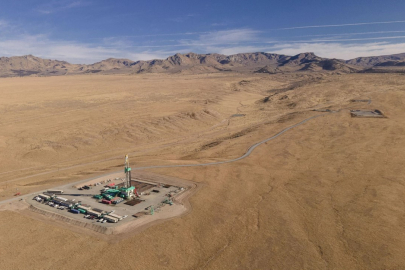 Advanced by Americans: A Year of Energy Innovation
Advanced by Americans: A Year of Energy Innovation -
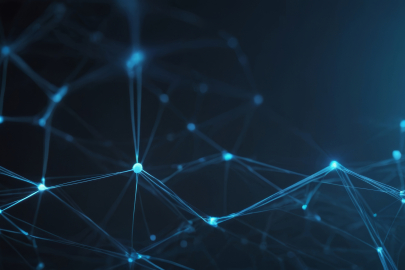 Six connected communities will demonstrate technology solutions to manage growing electric loads on the grid.
Six connected communities will demonstrate technology solutions to manage growing electric loads on the grid. -
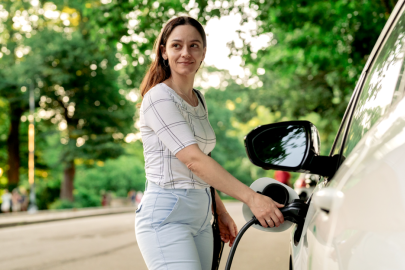 The Joint Office of Energy and Transportation invests $43.7 million to enable more charging access in the public right-of-way, expand e-mobility fleet options, and deliver new ways to scale affordable energy use in transportation.
The Joint Office of Energy and Transportation invests $43.7 million to enable more charging access in the public right-of-way, expand e-mobility fleet options, and deliver new ways to scale affordable energy use in transportation. -
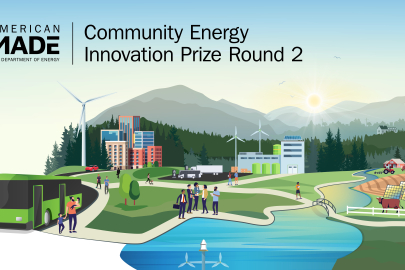 CONCEPT Phase Applications are now open in three tracks focused on clean energy, manufacturing, and transportation projects
CONCEPT Phase Applications are now open in three tracks focused on clean energy, manufacturing, and transportation projects -
 2024 was a critical year for DOE's Industrial Efficiency and Decarbonization Office (IEDO) as we continued to invest in transformational technologies and foster meaningful relationships to help U.S. industry thrive.
2024 was a critical year for DOE's Industrial Efficiency and Decarbonization Office (IEDO) as we continued to invest in transformational technologies and foster meaningful relationships to help U.S. industry thrive. -
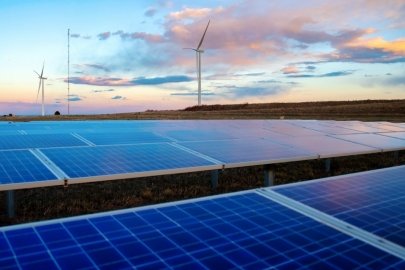 Funding to collaboratives in Illinois, Louisiana, Minnesota, and Virginia will support planning and evaluation of large-scale renewable energy and energy storage projects.
Funding to collaboratives in Illinois, Louisiana, Minnesota, and Virginia will support planning and evaluation of large-scale renewable energy and energy storage projects. -
 DOE’s national laboratories, state public utility commissions, and state energy offices, can apply to receive free Deep Dive technical assistance to address electric grid related issues through the Resources and Assistance for State Energy Offices and Regulators program.
DOE’s national laboratories, state public utility commissions, and state energy offices, can apply to receive free Deep Dive technical assistance to address electric grid related issues through the Resources and Assistance for State Energy Offices and Regulators program. -
 Report from DOE, USDA, and FAA highlights current federal efforts and identified gaps to meet the SAF Grand Challenge goals
Report from DOE, USDA, and FAA highlights current federal efforts and identified gaps to meet the SAF Grand Challenge goals -
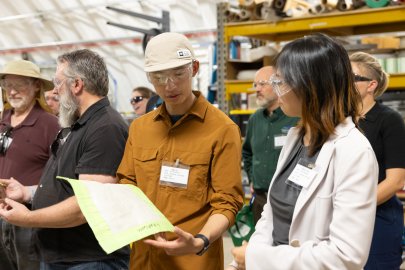 DOE Invests $10 Million To Support Clean Energy Transitions for Communities Across the United StatesThree new community teams will receive tailored funding and technical assistance to support clean energy goals
DOE Invests $10 Million To Support Clean Energy Transitions for Communities Across the United StatesThree new community teams will receive tailored funding and technical assistance to support clean energy goals -
 The U.S. Department of Energy’s (DOE) Clean Energy to Communities (C2C) program is now accepting applications for a new round of peer-learning cohorts.
The U.S. Department of Energy’s (DOE) Clean Energy to Communities (C2C) program is now accepting applications for a new round of peer-learning cohorts.

